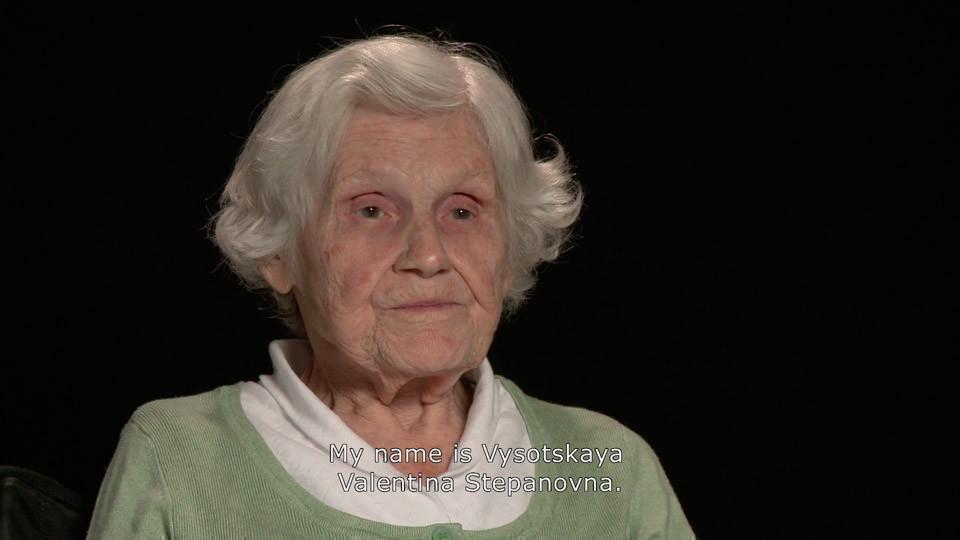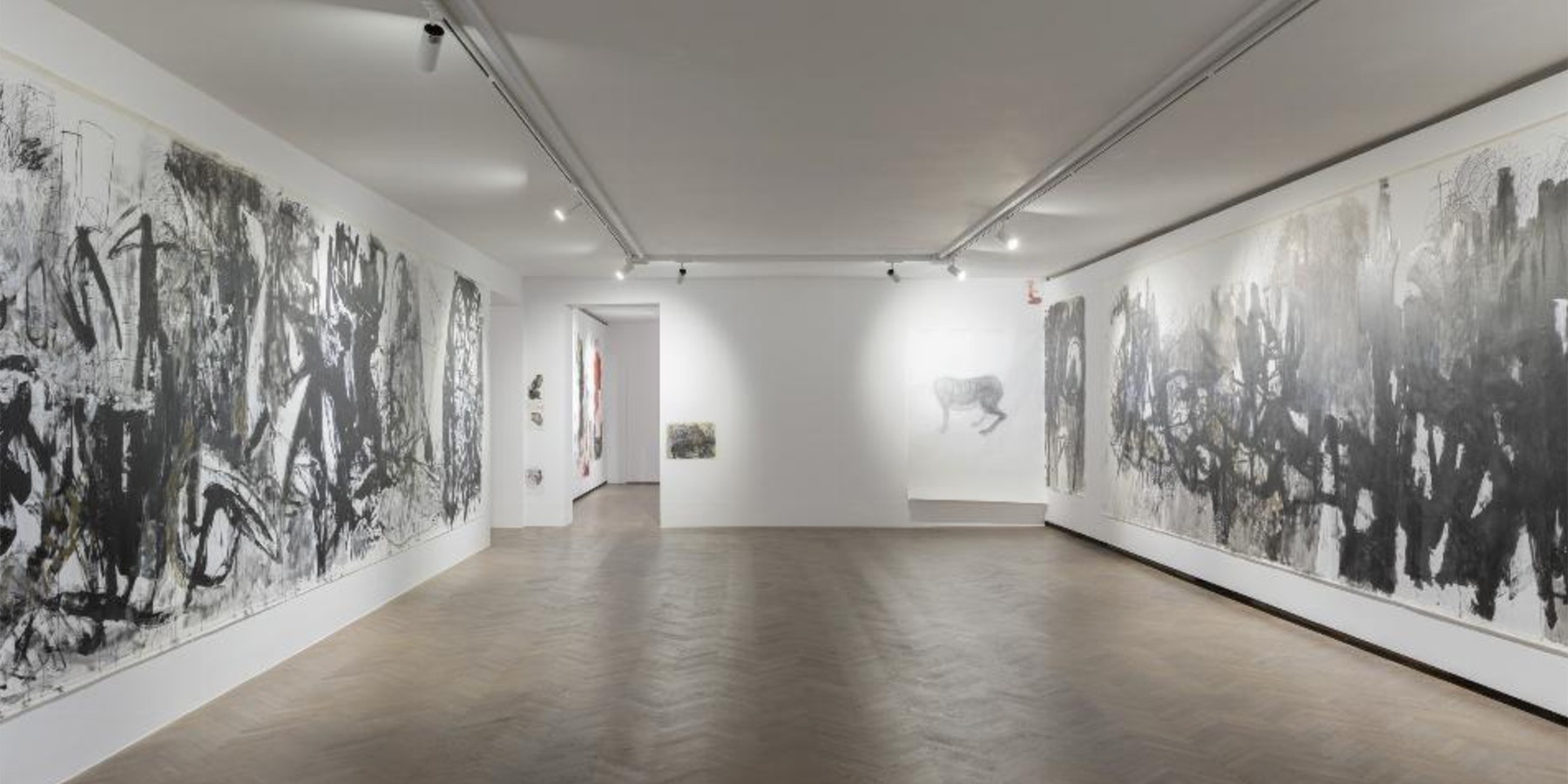Aleksander Komarov
Palipaduazennije
Aleksander Komarov
Palipaduazennije, 2012/2013, HD video, 21 min, edition: 2+1AP; art book, 2000 copies
Collection II of the Arsenal Gallery in Białystok. Work purchased by the Podlaskie Association for the Promotion of Fine Arts

The video film entitled Palipaduazennye resulted from Alexander Komarov’s cooperation with Belarusian émigrés resident in Amsterdam. This cooperation unfolded during a series of workshops devoted to the issues of language, its place in the process of cultural self-identification, and the formation of national identity. It must be noted that none of the invited participants was a speaker of Belarusian. At the outset, each of the participants was asked to find a word that aroused associations with emigration; then, find the selected word in a dictionary and pronounce it in Belarusian. On the following day, the participants pronouncing those words were recorded in a sound studio. The artist’s aim was to catch their articulation, the sounds of the language in its pure form. Yet the correctness of the achieved effects was debatable. The last element of the project consisted of constructing new words. The artist and the émigrés made use of Latin names of plants, combining botanical terms with words from the Belarusian language, creating ones that were new in terms of both structure and sound. Those newly created words were devoid of meanings or designations; they sounded Belarusian, but were incomprehensible to the speakers of that language.
Komarov’s meetings with the émigrés took place in, among others, the Amsterdam botanic garden. In the context of his explorations, this is a meaningful place. An overwhelming majority of plants that can be seen in the hothouses of European botanic gardens belongs to species originating from the far corners of the globe; thus, they live in an alien soil. Decades, sometimes even centuries ago seeds and seedlings were brought to the Old Continent by discoverers and colonisers. Appropriate conditions – in the European climate, artificial ones – had to be created in order for them to grow. In addition, each species was given a Latin name, understood by all researchers and exempt from the limitations of vernacular languages.
The situation of the émigrés is, in a sense, similar to the situation of botanical exhibits; both plants and people were planted in a strange soil. When in emigration, interpolations from one’s own language, incomprehensible neologisms, accent and pronunciation alien to the language of the new country, all play a part in the everyday experience of communication. Komarov purifies those problems of the mundane context, making them sound more forceful, and thus he highlights one of the aspects of living outside one’s homeland.
Izabela Kopania
translated from Polish by Klaudyna Michałowicz

PLAN YOUR VISIT
Opening times:
Thuesday – Sunday
10:00-18:00
Last admission
to exhibition is at:
17.30